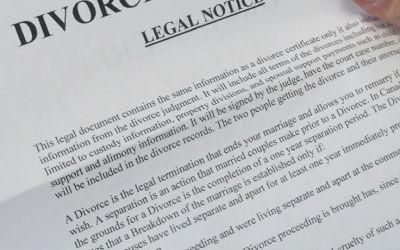
A Quick Guide to Divorce in Philippines 2024: Laws & Efficient Alternatives
Table of Contents ▼
Divorce in Philippines may be a distant dream for many Filipinos, but a significant change could soon make it a reality. Currently, the Philippines is one of the few countries where divorce is not legally permitted.
Recent events, however, point to the government’s possible consideration of legislation allowing divorce, thereby offering hope to people caught in miserable marriages. There are quick fixes accessible even as we wait for this possible legislative change. One such solution is getting divorced and remarried in Abu Dhabi.
Table of Contents
This article will discuss the present situation of divorce in Philippines, highlight the consequences of the upcoming legislation, and go over how Easy Wedding KSA can provide a workable solution.
The Current State of Divorce in Philippines
Currently, the Philippines stands as one of the last nations where divorce is not legally recognized.
Rather, the nation depends on legal separation and annulment—two complicated and costly procedures. For those wishing for a divorce in Philippines, for example, annulment is sometimes considered as a more practical choice. However it has certain difficulties.

This leads to many people feeling caught in unhappy marriages without a clear road ahead.
The Church’s Influence and Government Stance
The legal position of divorce in Philippines reflects the influence of the Catholic Church. Traditionally opposing divorce, the Church supports the sanctity and permanency of marriage.
Historically, Philippine law has not favored divorce, and this religious viewpoint has profoundly affected it. But the tides might be changing.
Recent conversations inside the Philippine government point to increasing openness to change this posture. A proposed bill to legalise divorce shows a change towards appreciating the evolving dynamics of modern relationships and the necessity of legal systems to properly handle marital problems.
Survey Results and Public Opinion
Public opinion on divorce in Philippines is evolving. Various surveys have shown a significant portion of the population supports the legalization of divorce.
Many Filipinos feel that current legal options, such as annulment, are inadequate and costly. The growing support for divorce legislation reflects a broader understanding of individual rights and personal happiness, signaling a potential shift in societal attitudes.
The Annulment Process: Challenges and Limitations
Annulment is the main legal option for those wishing to dissolve their marriage in the Philippines. Still, the annulment process is difficult.
It entails demonstrating either from the beginning that the marriage was void or that one partner is unable to meet their marital responsibilities. This can be an emotionally taxing, long, costly process.
Apart from that, the annulment process usually calls for thorough paperwork including psychological assessments and testimony, and entails difficult legal procedures.

Many people find the general difficulties and expenses of annulment to be intolerable, which leaves them in continuous marital misery.
Exceptions and Special Cases
Although divorce in Philippines is still mostly not possible, there have been some hopeful exceptions and unusual circumstances. Some people have, for instance, been able to get annulments or legal separations under particular conditions.
These include Muslims who, under Sharia law, can get divorced. Furthermore, Philippines married foreigners can divorce in a foreign nation and expect that it would be approved by the court.
For most individuals trying to divorce, these circumstances are unusual and offer no complete remedy.
What Happens When Divorce Becomes Legal in the Philippines?
Should the proposed divorce bill pass, Philippine law will undergo a major transformation. Legalizing divorce in Philippines would provide those trying to split their marriages with a more simple and easily available choice.
For those dealing with marital problems, this shift could relieve the present weight related to the annulment and offer a more compassionate and pragmatic answer.
Your Solution: Divorce and Remarriage in Abu Dhabi
While the future of divorce legislation in the Philippines remains uncertain, there is an immediate solution available for those who cannot wait for the legal changes. Our services in Abu Dhabi offer a practical and efficient alternative for Filipinos seeking divorce and remarriage.
Divorce Services in Abu Dhabi
Our team specializes in guaranteeing a seamless and legally acknowledged divorce process in Abu Dhabi.
Choosing a divorce in Abu Dhabi will help you avoid the involved and drawn-out annulment procedure in the Philippines. Our services offer a simplified method of divorce so you may go on with your life free from needless delays or problems.

From completing the required documentation to guaranteeing the finalization of your divorce, we are here to help you every stage of the way.
Remarriage Services in Abu Dhabi
Once your divorce is finalized, you may wish to remarry.
Our services extend to facilitating marriage procedures in Abu Dhabi as well. We offer comprehensive support for couples looking to get married, ensuring that your new beginning is as smooth and hassle-free as possible.
To learn more about our marriage services, visit our court wedding page. Whether you’re looking for a simple and elegant ceremony or a more elaborate celebration, we can help you make your dream wedding a reality.
Conclusion
Many people are left wondering how to negotiate their present marriage difficulties while the divorce in Philippines remains illegal.

Our services in Abu Dhabi offer a workable alternative for people looking for divorce and remarriage while legislative reforms are under process.
Choosing to divorce and remarry in Abu Dhabi can help you get beyond the complexity of the Philippine annulment process and start your life. Visit our divorce page and court wedding page for further information on how we might help you.
We promise to be here to support you during this significant change.
FAQs
Can a Filipino who obtained a divorce abroad remarry in the Philippines?
Yes, but the foreign divorce must first be recognized by a Philippine court through a legal process.
What are the financial implications of filing for an annulment in the Philippines?
The cost of annulment can be substantial, often running into hundreds of thousands of pesos, depending on the case’s complexity and legal fees.
How do annulment and legal separation affect child custody in the Philippines?
Child custody is determined based on the child’s best interests, regardless of whether the parents undergo annulment or legal separation.


